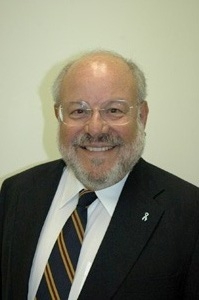Inexplicable, but in line, says Dr. Jeffrey Patterson, immediate past president of Physicians for Social Responsibility, with the "cover-up, a minimization of the effects of radioactivity, since the development of nuclear weapons and nuclear technology."
Here and there, there's been a break through the Fukushima cover-up--such the PBS television Frontline program, Inside Japan's Nuclear Meltdown, that aired last week with an interview with former Japanese Prime Minister Naoto Kan in which he acknowledged that Japanese officials considered at one point an evacuation of the greater Tokyo area with its 30 million people. The New York Times, in a Page One story last week, also reported this based not on its own investigative work but on a six-month inquiry by the Rebuild Japan Initiative Foundation that resulted in a 400-page report.
Yes, as WASH-740-update said decades ago, the scale of a major nuclear plant accident "might be equal to that of the State of Pennsylvania."
Another part of the cover-up since Fukushima has been the claim that there is no alternative to nuclear power. As Miranda Spencer wrote in last May's issue of Extra! magazine, with the Fukushima disaster "U.S. government and nuclear industry spin control kicked in, asserting that a similar disaster couldn't happen here, and that atomic power is here to stay"An option hardly mentioned: renewable energy, such as wind, solar and geothermal power."
This is especially important for the nuclear establishment because, as Spencer pointed out, "wind is already cheaper per kilowatt-hour than nuclear" and "the National Research Council estimates that by 2020, the cost of geothermal will be comparable to or lower than that of nuclear (10 cents/kwh versus 6-13 cents/kwh). Solar power, which the Council said "could potentially produce many times the current and projected future U.S. electricity consumption," is projected to cost anywhere from 8-30 cents/kwh. Also, "A Duke University study found that the cost of solar power has not only recently declined by half, but also is poised to become cheaper than nuclear, even in places that aren't always sunny." The claims, she accurately wrote, that safe, clean, renewable power is not here to substitute for atomic energy "simply don't stand up to scrutiny."
But "the story that emerged accordingly presented nuclear energy as a path with no real alternatives." This is despite Germany, Italy, Switzerland and other nations deciding, because of Fukushima, to pursue safe, clean, renewable power instead of nuclear power. It can be done.
"Renewable Energy Can Power the World, Says Landmark IPCC Study," headlined the British newspaper, The Guardian, also in May. It went on: "UN's climate change science body says renewable supply, particularly solar power, can meet global demand." The article, about a 1,000-page report of the United Nation's Intergovernmental Panel on Climate Change, added, however, that this is "only if governments pursue the policies needed to promote green power."
An especially grisly angle was taken in last week's The Economist magazine. In an article titled "Radiation and evolution, Surviving fallout," it reported on a study on birds around Chernobyl and Fukushima. "When researchers looked at the 14 bird species that lived in both regions, they found that the same level of radiation was associated with twice as large a drop in bird numbers in Fukushima as in Chernobyl."
The Economist said that Dr. Timothy Mousseau, professor of biological sciences at the University of South Carolina, co-author of the study published in Environmental Pollution, believes a "likely explanation is that evolution has already been at work near Chernobyl, killing off individual birds that cannot cope with the background radiation and allowing the genes of those that have some tolerance to be passed on. The birds at Fukushima are only beginning to face the evolutionary challenge of living in a radioactive world."
Does this point to the consequence of living in "a radioactive world" the elimination of huge numbers of people--with the more radiation-tolerant humans the survivors? Is this what we want? And is there no choice but to live in "a radioactive world."
Nobel Award-winning biologist Dr. George Wald once said of nuclear power: "If you were to read in the newspapers tomorrow that astronomers had a shocking piece of information for us, they had just found another star is going to collide with the sun and that would be curtains, we'd have eight months more to go and, finished--why--heavens above! You would put on your best clothes and go dancing in the streets--that's cosmic, that's fate. You could go out with dignity." But to die as a result of nuclear power, he said, "is so trivial, it's so ghastly ignoble as to be, I think, intolerable, altogether unacceptable." And he called for "the closing down of all nuclear power plants tomorrow."
That's more relevant--and urgent--than ever.
(Note: You can view every article as one long page if you sign up as an Advocate Member, or higher).





